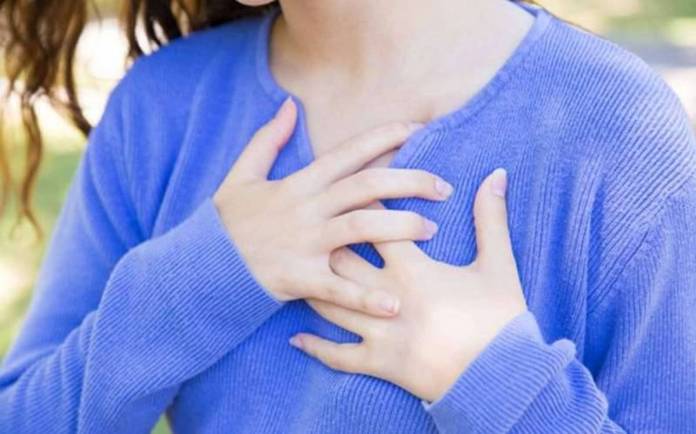The feeling of a rapid heartbeat or a rapid heartbeat is when the heart beats faster than usual, it is known that the normal heart rate is 60 to 100 beats per minute, and a rapid heartbeat is considered to be more than 100 beats per minute. In this article, we will reveal to you the causes of this rapid pulse and how you can treat it, along with the most important symptoms that indicate it.
There are many reasons that lead to a feeling of a rapid heartbeat, and the most important of them are:
Reduction of Blood pressure: Many studies indicated that low blood pressure has a close and direct relationship with the acceleration of the heartbeat, and this is because it increases the heart rate to maintain the level of blood pressure in the human body. We add to this that there are other diseases related to heart health, including atherosclerosis, clogged arteries and heart failure.
Hyperthyroidism: The overproduction of thyroid hormones affects all heart organs, including the heart, and leads to a rapid heartbeat.
Anemia: According to several studies and research, suffering from iron deficiency anemia causes an irregular or rapid heartbeat, and this is because when a person suffers from anemia, the heart works to pump more blood to compensate for the lack of oxygen in the blood.
Diabetes: People who suffer from diabetes, especially type 2 diabetes, are more susceptible to heart disease and this is due to the accumulation of cholesterol in the blood vessels, which in turn leads to coronary arteriosclerosis and causes a rapid heartbeat.
Lack of fluid in the body: If you do not get the necessary amount of water and fluids per day, or about two liters per day, you will become dehydrated, which in turn leads to an imbalance in the heartbeat and its acceleration.
Salt disturbances: An imbalance in the body’s hormones, especially the salts that are responsible for regulating the heart rate, directly leads to an acceleration of the heartbeat.
Exercise: Heart rate is related to exercise intensity, so the more exercise, the higher the heart rate.
When your heart beats too fast, it may not pump enough blood to the rest of the body, depriving tissues and organs of oxygen and causing signs and symptoms associated with an accelerated heartbeat, including:
Feeling short of breath.
Feeling anxious and tense.
Feeling of palpitations of the heart, chest or throat.
Feeling tired and unable to engage in any activity.
Dizziness or lightheadedness
Fainting.
You should know that to treat tachycardia, the underlying cause must be identified, but there are several ways to help prevent heart disease, including:
Maintaining blood pressure and cholesterol levels by making life changes and taking appropriate medications prescribed by your doctor.
Limit your intake of caffeinated drinks.
Stay away from the causes of anxiety and tension, and this may be done by practicing self-calming exercises.
Get the right amount of water and fluids to prevent dehydration.
Get as much rest as possible if you feel tired.
Resort to the use of cold water bags on the neck, forehead, and head.
Source : Health News







